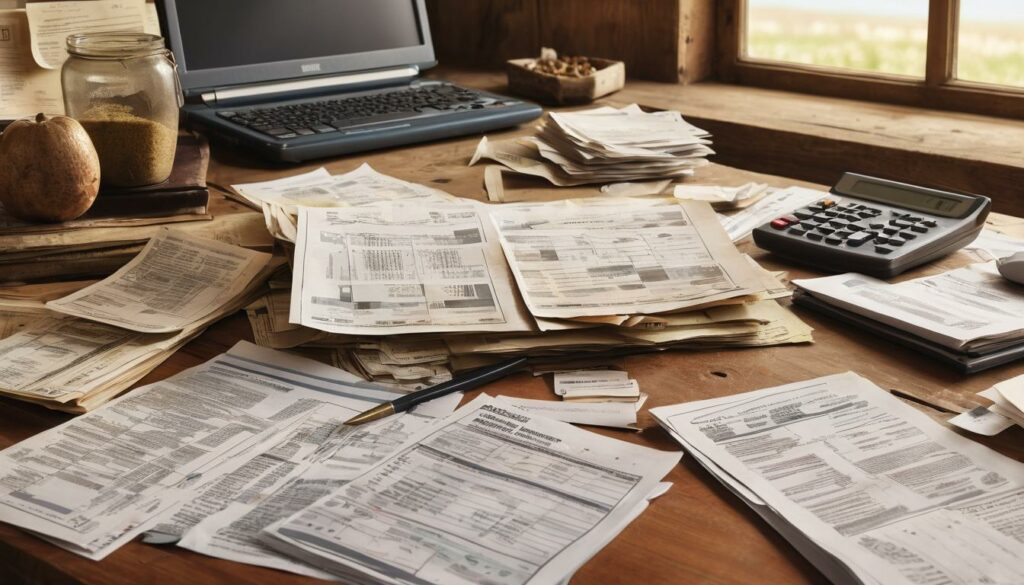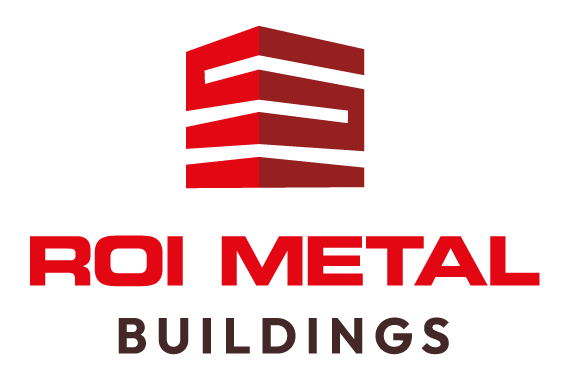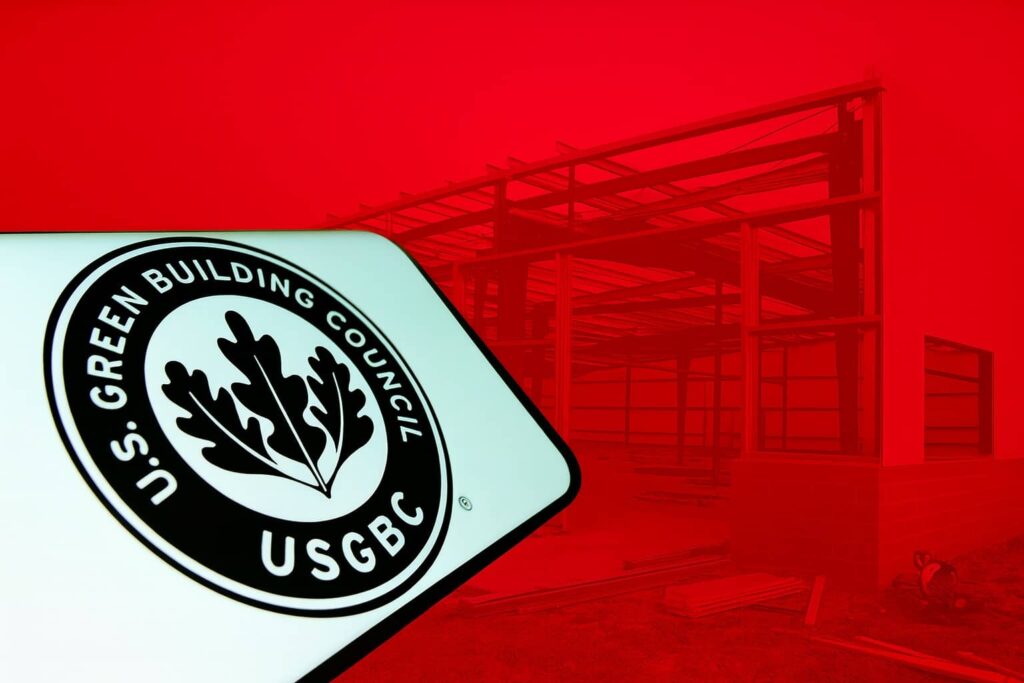Running a farm presents many challenges, especially when dealing with unpredictable crop prices and maintaining high costs. One of the biggest hurdles you likely face is finding effective ways to manage your finances, particularly through tax savings. Understanding and utilizing specific tax write-offs can be a game-changer, offering vital financial respite. You’ve probably found out through hard work and discussions at agricultural expos how managing soil and water conservation efforts or renting machinery (custom hire) are crucial aspects of your operation.
But did you know that these very efforts are also significant tax deductibles? According to IRS guidelines, expenses for tasks like machinery rentals and soil preservation can substantially lower your taxable income. We’ve spent considerable energy gathering precise information from reliable sources, ensuring you have the tools to maximize your deductions. With this knowledge, let’s explore more about how these key write-offs can positively impact your farm’s financial health.
This article is the first of our new mini-series about tax tips for metal buildings. Our next few articles will be geared to help make sure our customers maximize their tax benefits before the end of the year. Stay tuned over the coming weeks as we take a deep dive into these benefits. If you’ve followed our articles in the past, you know the value that’s hidden within these articles. If you’re planning on adding a metal building to your property, look no further than ROI Metal Buildings for all of the crucial information to get started!
Some of the biggest tax write-offs for farmers include deductions for depreciation on machinery and buildings, property taxes related to agricultural land, employee wages and benefits, and expenses incurred for soil and water conservation efforts. Additionally, farmers can benefit from deducting costs associated with utilities, maintenance, insurance, and marketing their products, which collectively can significantly reduce taxable income.

Exploring Farm-Specific Tax Write-Offs
Farmers are often surprised to learn about the specific deductions available to them, which can ensure that their hard work translates into greater financial benefit. The IRS recognizes that agricultural operations incur unique expenses and allows several significant write-offs that can greatly alleviate financial burdens.
For instance, one of the most important categories is depreciation. If you’re purchasing expensive equipment or structures for your farm, don’t forget you’re not just spending; you’re also investing. Depreciation allows you to spread the cost of these investments over several years, reducing taxable income each year. This not only lowers your current tax bill but helps maximize your cash flow—essential in this unpredictable industry.
It’s crucial to track and document the costs associated with any equipment or building purchased for your farming operation, as proper record-keeping will support your claims when it comes time to file taxes.
Another vital area involves soil and water conservation efforts. The IRS allows farmers to deduct specific expenditures related to environmentally friendly practices aimed at conserving soil and water. This can include costs incurred from installing irrigation systems or implementing erosion control measures. Beyond the financial benefit, this incentive encourages sustainable practices that can ensure the land remains productive for generations.
According to IRS data, many farmers find these deductions cover a substantial portion of their operational costs—reassuring as farming inherently comes with financial risks.
Additionally, custom hire expenses for machine work certainly warrant attention. Rather than investing in costly machinery that may only be needed sporadically, hiring custom services can be a more economical option. These costs—whether it’s hiring someone to plow your fields or to plant and harvest crops—are fully deductible as business expenses. This flexibility can save you money while ensuring that you get professional results when peak demands arise on your farm.
Lastly, it’s essential not to overlook everyday operating expenses that farmers face, ranging from seed purchases and feed supply to maintenance on equipment and utilities associated with running the farm. These typical annual costs directly affect your bottom line and are eligible for deduction in the year they are incurred.
By understanding these crucial tax write-offs relevant to farm operations, you can effectively enhance overall profitability while streamlining your financial strategy. Next, we’ll explore another pivotal aspect of agricultural tax management—focusing specifically on how asset implications can further boost your savings.
Equipment and Vehicle Deductions
Farmers know that investing in equipment and vehicles is critical to their operations; however, these expenses can also leave a notable dent in the wallet. Fortunately, the IRS offers significant relief through various deductions. For instance, under Section 179 of the tax code, farmers can receive an immediate financial break by deducting the entire purchase price of qualifying equipment and vehicles from their gross income. This means if you’ve invested in essential machinery such as a tractor or combine harvester within the tax year, you can write off that entire expenditure, thus reducing your taxable income substantially.
The tax benefits here are substantial. Imagine spending $100,000 on a new tractor; if you qualify under Section 179, that entire amount could essentially become a deduction on your taxes. If you’re looking at big purchases—like larger equipment—you might genuinely reduce your taxable burden significantly.
Section 179 Deduction
The Section 179 deduction is designed specifically for small to medium-sized businesses, making it advantageous for farms that invest heavily in equipment acquisition. In 2024, the deduction limit has been set at $1,160,000, with a spending cap of $2,890,000 on equipment purchases. This means as long as your total investment remains below this threshold, you can enjoy complete expense deductions without carrying them over into future tax years.
It’s not just about large machinery either; many farmers overlook additional qualifying items like specialized farm vehicles used for transportation or livestock management. This flexibility allows farmers to maximize their deductions across different areas of operation, which adds up quickly throughout the year. Maintaining accurate records of these purchases becomes paramount—not just for claiming deductions but for safeguarding against any audits or inquiries by the IRS.
Moreover, take note of the different types of vehicles that qualify for these deductions. Whether it’s trucks for hauling crops or ATVs used for scouting fields, nearly all forms of transportation related to farm operations can often be included. As with all tax matters, though, it’s prudent to consult with a tax professional who understands agricultural nuances to ensure you’re not leaving money on the table.
Exploring these options opens the door to understanding further financial considerations related to managing your farming operation effectively. Next, we will uncover expenses associated with raising livestock that can also lead to favorable tax outcomes.
Livestock-Related Expenses
Understanding what constitutes deductible livestock-related expenses is crucial for maximizing tax efficiency. Any farmer involved in raising livestock knows that the costs associated with care and maintenance quickly accumulate. However, many are unaware that these expenses may be deducted from their taxable income. For instance, routine expenditures on feed, veterinary services, and breeding fees all qualify as deductible. Farmers can track their spending effectively and leverage these costs as tax breaks.
Deductible Expenses
The IRS permits farmers to deduct ordinary and necessary costs incurred in the pursuit of producing livestock. This includes items such as high-quality feed to ensure good health, routine veterinary check-ups to prevent illnesses, and expenses related to breeding livestock successfully. For example, if a farmer invests around $50,000 in feed and veterinary care over a year, this amount can directly reduce their gross income, leading to significant tax savings.
In addition to daily operational costs, farmers should be aware that the expenses associated with purchasing livestock aren’t lost entirely; they can be recouped through depreciation over time. This means that buying young stock, which might initially seem like a hefty expense, can pay off as a tax write-off spread across several years.
Some additional expenses are commonly overlooked yet hold potential for being claimed on tax returns. For instance, insurance costs pertaining to livestock welfare are deductible, as are supplies used for caring for them. From minerals and supplements aimed at improving health to costs incurred for maintaining fences or barns where animals reside, these too qualify as legitimate expenses under the umbrella of animal husbandry.
As we move forward into understanding the nuances of financial management in agriculture, let’s dive deeper into specific cost deductions related to operational activities that support successful farming practices.
Deductible Operational Costs
Managing day-to-day operational costs can sometimes feel like walking a tightrope, precariously balancing expenses with the income generated from farming activities. However, taking advantage of tax write-offs plays a pivotal role in easing this burden. Farmers can claim a variety of deductible operational costs, transforming an overwhelming list of expenditures into valuable deductions that can help lower taxable income.
Common Operational Deductions
- Utilities: Expenses related to electricity, water, and gas are often among the largest operational costs on a farm. Utilities are necessary for irrigation, cooling, heating, and other essential activities that support daily operations.
- Farm Office Expense: Costs incurred for stationery supplies, phone services, and internet access also qualify as business expenses. These tools are vital for managing operations, keeping records, and maintaining communication with suppliers and customers alike.
- Insurance Premiums: Insurance protects your investments in property and crops, making premiums pivotal. Farmers should track payments on both property insurance and crop insurance as these will directly benefit your bottom line during tax season.
Keeping detailed records of all these expenses through receipts and invoices is vital. It ensures you have the necessary documentation ready for tax returns and justifies the deductions if questioned by tax authorities. For instance, tracking your monthly utility bills not only shows how much you’re spending but can reveal trends—allowing you to make informed decisions about energy conservation or using renewable resources.
Many farmers might overlook small details while calculating their deductions; however, every little bit counts. A few hundred dollars here and there can add up substantially over the course of a year!
Another significant area worth exploring is understanding how deduction strategies can extend to long-term investments in farm infrastructure and equipment. This lays the groundwork for optimizing overall financial strategy moving forward.
Depreciation of Land and Buildings
Depreciation can be a nuanced topic, yet it’s vital for farmers to grasp in order to leverage tax benefits fully. It’s not only applicable to equipment but also plays a significant role in the financial management of your properties. For instance, many farmers can depreciate their farm structures over a period of 20 years, allowing them to spread out costs and enjoy substantial tax savings. This process creates a scenario where you’re not just paying upfront for these necessary investments; you’re actively reclaiming some of that cost via your tax returns year after year.
Depreciation of Farm Structures
The importance of understanding how depreciation works cannot be overstated. The Internal Revenue Service (IRS) categorizes buildings and improvements as assets subject to depreciation. By deducting this amount annually, farmers reduce taxable income, creating a more favorable tax situation. It’s critical to keep accurate records of your building costs, improvement expenses, and other related expenditures to document your depreciation claims effectively. By doing this, you not only comply with regulations but also maximize potential financial returns.
For example, if you invest in expanding your barn or constructing new storage facilities, you can utilize the IRS’s Modified Accelerated Cost Recovery System (MACRS) for more rapid depreciation. This system allows you to recover costs much faster than traditional methods.
Metal Buildings as a Tax Deduction
Metal buildings have become increasingly popular among farmers due to their durability and lower maintenance costs. Not only do they provide operational benefits, but they also qualify for accelerated depreciation schedules that are favorable for tax purposes. When investing in metal structures from ROI Metal Buildings, you secure immediate financial relief through write-offs that can enhance cash flow significantly.
Imagine putting up a stylish new barn that adds character to your property while also saving you money on taxes—what could be better than that?
It’s essential to navigate the complexities of IRS rules carefully to ensure these deductions are accurately claimed and maximized over time. Understanding these guidelines will help protect your financial interests as we continue our exploration into the intricacies that impact agricultural operations.
Navigating IRS Regulations
IRS regulations are a maze that can leave even seasoned farmers feeling overwhelmed. However, grasping these regulations is crucial for ensuring you reap the maximum benefits from your hard work. Familiarizing yourself with specific guidelines enhances your ability to claim write-offs and protects you from potential audits. One key element in navigating these regulations is knowing which expenses qualify and how they should be documented.
Importance of Accurate Records
Maintaining meticulous records of all farming expenses is essential. Every receipt, invoice, and accounting entry serves as evidence that supports your deduction claims, making it imperative to keep organized records throughout the year. This habit not only complements your tax returns but also fosters a clearer financial picture, allowing you to analyze where your funds are going.
For many farmers, tools like QuickBooks can significantly simplify record-keeping. These software solutions can automate the tracking process, consolidating data in one accessible place and eliminating human error. However, it’s wise to consult with a tax professional regularly—not just during tax season—to ensure compliance with current laws and maximize your deductions. Understanding changes in legislation or new potential write-offs can impact your finances.
Proper record-keeping feeds into more strategic tax planning, setting the stage for optimizing your financial strategy as you align daily operations with tax savings.
Strategic Tax Planning for Farmers

Effective tax planning is about anticipating expenses and maximizing deductions. This structured approach enables farmers to identify and prepare for annual costs that can be deducted from their taxable income. A proactive mindset towards taxes can make a significant difference, especially given the fluctuating nature of farming incomes due to seasons and market variables.
Create a Tax Plan
Developing a solid tax plan involves several steps. Start by identifying your major annual expenses, which can include equipment purchases, seed costs, labor, and utilities. By knowing where your money goes, you begin to see areas where deductions might be maximized. For instance, if you’ve invested significantly in new machinery, this expense can often be depreciated over several years.
Following this, it’s crucial to track all deductible costs carefully throughout the year. Not keeping proper records can lead to leaving money on the table come tax season; expenses like fuel, maintenance costs, and vehicle usage related to farm operations can add up significantly. Utilizing accounting software tailored for farming operations can simplify this process immensely. Records can be stored digitally, allowing for easy access whenever necessary.
Finally, it’s wise to consult with a tax professional for personalized advice. Every farm is unique, and a professional can help navigate the complex landscape of agricultural tax law. Tailored advice ensures you’re taking full advantage of all possible write-offs. Small changes or strategies recommended by professionals may lead to large savings.
For example, John, a farmer from Iowa, saw his tax burden decrease by 30% after implementing a strategic tax plan with the help of his accountant.
Having a well-thought-out tax strategy ensures that farmers can take full advantage of write-offs while managing their finances effectively. This meticulous attention to financial detail not only helps reduce immediate tax burdens but ultimately contributes to long-term growth and stability for farming operations.
Summary: Biggest Tax Write-Offs for Farmers
These insights into the biggest tax write-offs can greatly benefit your farming operation by reducing your taxable income and improving your financial health. Consider exploring available resources designed specifically to support the efficiency and profitability of your farm by contacting us or give us a call at 865-316-9009 for personalized assistance today! Also, if you like our content and want to stay up to date, follow us on Facebook at https://www.facebook.com/roimetalbuildings!



